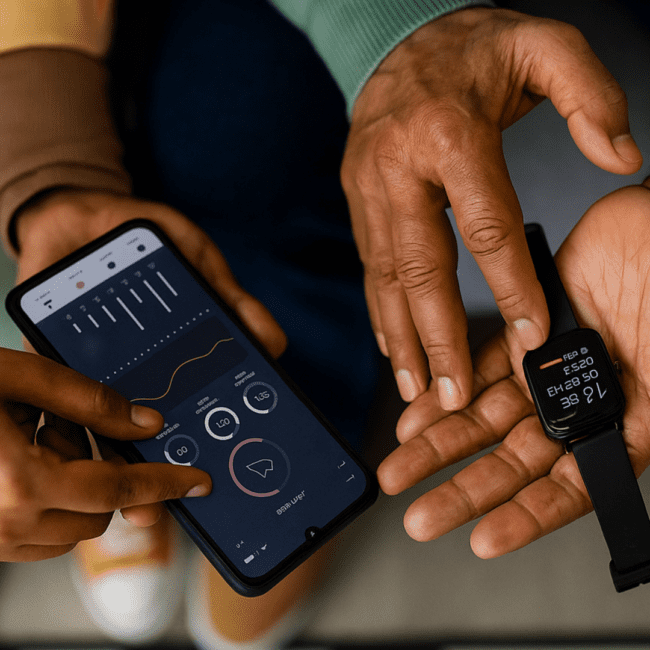Introduction
Music therapy is gaining recognition as a gentle yet impactful method to support older adults, particularly in enhancing memory and emotional health. Far from being just entertainment, music engages several regions of the brain, including those related to memory, emotions, and sound.
The limbic system (which processes emotions), the auditory cortex (which decodes sound), and the hippocampus (linked to memory) all light up when music plays. This explains why even seniors with memory loss can often recall the lyrics of a childhood song. Rhythm and melody work as cues that help retrieve deeply stored memories, making music an ideal tool for connecting with older adults, especially those facing cognitive decline.
Music Therapy for Memory Enhancement
Music has proven particularly effective in supporting individuals with Alzheimer’s and other forms of dementia. Familiar tunes can unlock memories that feel otherwise unreachable. For instance, a senior who struggles to recognise family members may suddenly smile and sing along when they hear a song from their college days.
Numerous studies support these experiences. Music therapy has been shown to improve attention, reduce confusion, and encourage verbal interaction. In dementia care, it helps maintain a sense of identity and offers moments of joy and clarity, even if just temporarily.
Music’s Influence on Mood and Emotional Health
In addition to memory, music also plays a crucial role in regulating mood. It can soothe anxiety, ease restlessness, and provide comfort without the side effects of medication. Soft classical tunes or devotional songs can help calm an agitated parent, while upbeat melodies might bring joy and motivation during the day.
Group music activities, such as sing-alongs or drum circles, encourage social interaction and reduce loneliness. These shared experiences foster a sense of community and emotional support, especially in group care settings.
Practical Applications in Daily Elder Care
Bringing music into your parents’ daily routine doesn’t require a professional therapist. You can start small with a personalised playlist of songs they loved in their youth or from meaningful life events. Playing music during mealtimes, bathing, or relaxation can make daily routines more pleasant.
Reminiscence therapy, where music prompts storytelling, is another beautiful way to connect. In group settings, sing-alongs, dance sessions, or even tapping to rhythm can lift moods and promote gentle movement.
As a caregiver or family member, your involvement in choosing the right music, setting the atmosphere, and encouraging participation can make a significant difference.
Professional Music Therapy vs Informal Use
Certified music therapists provide structured therapy plans tailored to individual needs, especially in complex conditions like Parkinson’s or advanced dementia. They use specific rhythms, instruments, and vocal techniques to meet therapeutic goals.
However, informal music use at home can still be highly beneficial. With tools like YouTube, Spotify, or other streaming apps, it’s easy to access nostalgic hits, bhajans, or meditative music, all cost-effective and accessible.
Consider professional therapy if your parent has complex medical or emotional needs, but for everyday care, family-led musical engagement is often more than enough.
Practical Applications in Daily Elder Care
You don’t need to be a music therapist to help your parent benefit from music.
- Personalised playlists: Gather songs from their youth or special moments in life.
- Reminiscence therapy: Pair music with photos to stir deep, emotional memories.
- Group sessions: Encourage sing-alongs, drumming circles, or movement to music. These can be both fun and therapeutic.
Tips for Families and Caregivers
- Choose wisely: Use songs your parent recognises and enjoy. Watch how they respond and be ready to change the music if needed.
- Start slow: Introduce music at quiet times, perhaps in the morning or during evening wind-down.
- Observe: If a song evokes a negative reaction, skip it. Not every memory associated with music is pleasant.
Use available resources: Apps like Spotify, Gaana, and YouTube have curated playlists for seniors, devotional music, and classic favourites that can easily be used at home.
Conclusion
Music offers more than nostalgia, it provides comfort, connection, and healing. It’s a natural bridge to memory and mood, often reaching places that words and routine care cannot. Whether through a playlist at home or a professional session, music can help your ageing parent feel more seen, heard, and loved.
Start today with a simple song, one that means something to your parent. Watch the transformation, however small. After all, when everything else seems to fade, music has the power to remain.






